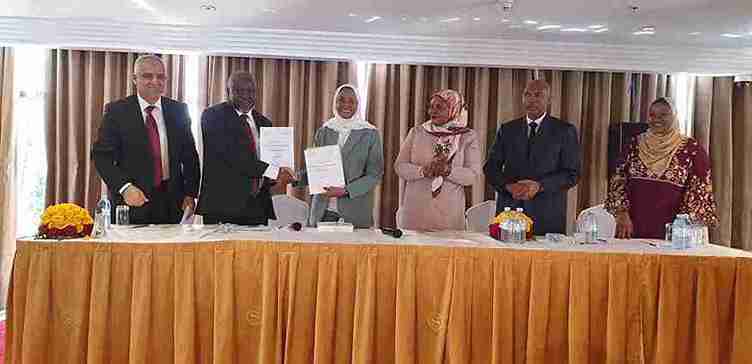Kampala University (KU) and the Islamic University in Uganda (IUIU) have collaborated with the International Center for Biosaline Agriculture (ICBA) and support from the Islamic Development Bank (IsDB) to convene a high-level dialogue on climate change and women in agriculture.
The event, held at the Sheraton Hotel in Kampala on November 20, brought together 30 experts from Uganda, Kenya and Tanzania. The dialogue, titled “Climate Change and Women in Agriculture: Challenges and Opportunities in Sub-Saharan Africa Region,” provided a platform to discuss key issues surrounding gender equality, women’s empowerment, leadership, innovative technologies, climate impacts and capacity building in the agricultural sector.
Lukia Nakadama, the Third Deputy Prime Minister and Minister without Portfolio, expressed the government’s commitment to harnessing the potential of women in agriculture in addressing climate change. Recognizing that women play a significant role in the agricultural sector, she emphasized their importance as change agents.
Nakadama affirmed that this initiative will extend to all regions of the country, aiming to empower women to actively contribute to climate change mitigation and adaptation efforts. She encouraged the dialogue to foster innovation and generate practical solutions to tackle challenges related to agriculture, nutrition, and climate change.
As part of ongoing collaboration, ICBA Director General Dr. Tarifa Alzaabi and IUIU Rector Prof. Ismail Simbwa Gyagenda signed a memorandum of understanding to strengthen cooperation between the institutions in areas like joint projects, programs and capacity development focused on agricultural research.
ICBA Chief Operations Officer Dr. Charbel Tarraf highlighted the need to equip women with skills and decision-making roles to boost small-scale farming. He thanked IsDB for its support, noting ICBA’s work has benefitted over 4,000 specialists and farmers in 49 countries since 2000.
Women represent an average 43% of agricultural laborers in developing nations but own just 15% of farmland. Climate change disproportionately impacts female smallholders.
In response, ICBA is launching the Women Alliance for Climate Action in Agriculture(WACAA) to advocate for gender equality and sustainable resilience through partnerships, policies and programs.
The high-level dialogue marked progress toward empowering women farmers facing climate threats. By facilitating knowledge sharing across institutions and nations, it aimed to foster concrete actions supporting women’s vital roles in regional agriculture.


